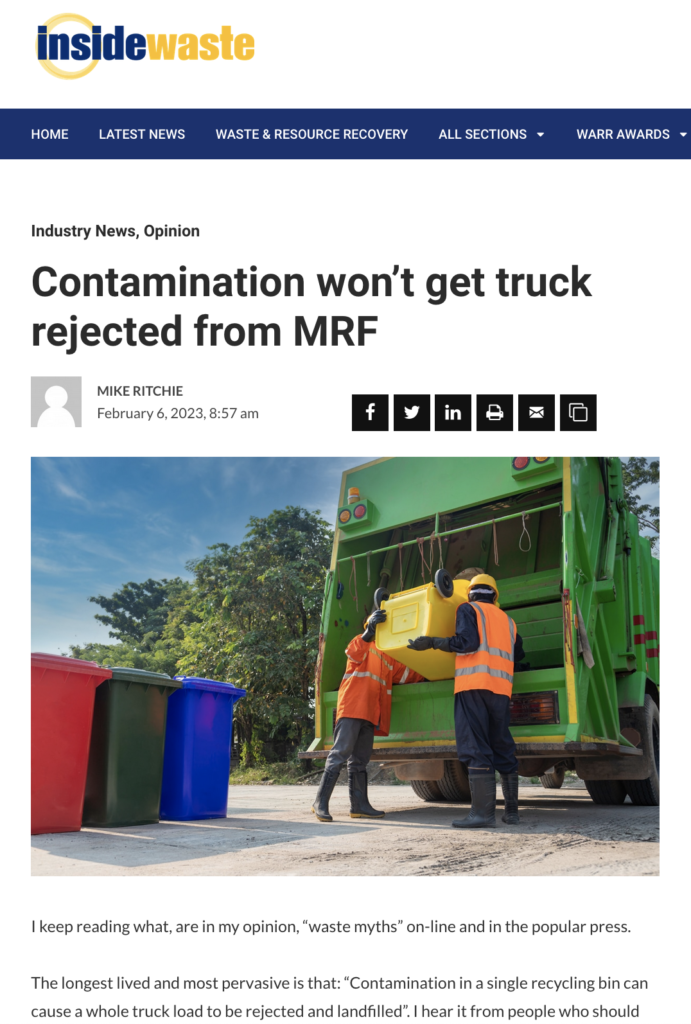Waste myth #1: Recycling contamination

By Mike Ritchie, Director, MRA Consulting Group
I keep reading (what I think are) “waste myths” on-line and in the popular press.
The longest lived and most pervasive is that: “Contamination in a single recycling bin can cause a whole truck load to be rejected and landfilled”. I hear it from people who should know better.
Unless the contaminant is a bomb or equivalent, it is complete porkies.
And don’t get me wrong, I am not saying that contamination is ok. We should actively try to minimise it. However, having run six MRF’s, I have never rejected a truck load of recyclables unless it is 30% plus of garbage or is on fire. (That is, about 1.5 tonnes out of a payload of 5 tonnes).
That is true of all MRFs and MRF operators. The economics would kill the MRF if they did that. It costs a LOT more to landfill a load than to process and sell it. Even if it is heavily contaminated (but less than 30%).
Most council contracts with MRFs recognise this and compensate the MRF operator for higher contamination levels.
Furthermore, no single bin and no single resident, makes that much difference.
Tweet
An average truck holds 500 yellow lid bins worth of recyclables. Even if a bin was 100% contaminated with garbage it would represent about a 0.2% contamination rate of the truck. Not enough to trigger a load rejection.
The average Australian contamination rate of recycling trucks is 12%. One bin is not even a blip.
MRFs are capable and designed to handle contamination. They do a great job of turning yellow bin recyclables into saleable bales of product. “Sows ears into silk purses” so to speak.
Of course, it costs MRFs money to landfill contamination and we should reduce it wherever we can.
But “green-shaming” residents is counterproductive. We need to encourage and not “guilt” residents to do the right thing.
Of course ,we need to reduce contamination from the average 12% nationally but blaming residents for whole truck loads being rejected is not right, or smart. And it is not correct.
Mike Ritchie is the Managing Director at MRA Consulting Group.
This article has been published by the following media outlets:




